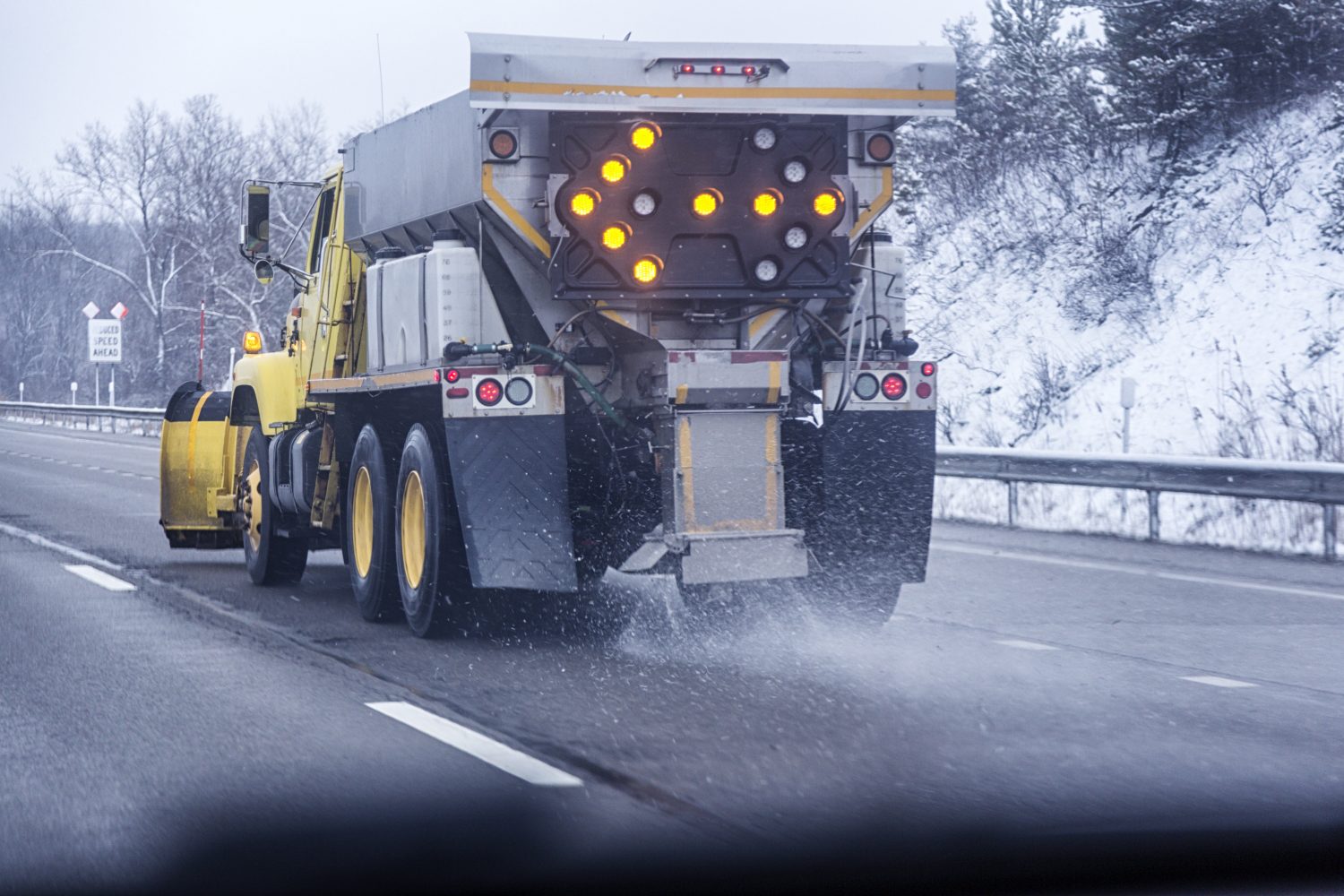It’s easy to forget about road salt. For most of the year in Connecticut, we do not see white coatings on asphalt parking lots or salt residue on our cars. However, the salt that we apply to our roads in the winter months persists in the environment, even though we can’t see it. There are stacks of scientific journal articles that document the damaging effects of road salt on aquatic life, plants, and infrastructure. It can also negatively impact us as residents. UConn Extension has worked for many years to raise awareness of this issue by convening statewide workshops and participating in workgroups with agencies in the state such as the Department of Public Health, Department of Energy and Environmental Protection, and the Department of Transportation. Despite the concern and tireless efforts of many people across Connecticut to try to address this issue, no alternative product with less environmental impact has been found.
One ray of hope is the Green Snow Pro program being run by UConn’s Training and Technical Assistance Center. Based on a program from New Hampshire, Green Snow Pro provides hands-on training for municipal public works staff. Participants learn about how salt works and how to calibrate equipment to optimize the right product, in the correct amount, given the weather conditions. Staff have been trained in most of Connecticut’s towns. Benefits include reduced salt applications, which translates to reduced costs for towns, while still maintaining safe conditions.
UConn Extension documented some of the benefits to local waters after UConn facilities received the training. What this means is less salt accumulating in local waters in the towns where this program is implemented, creating better conditions for plants and aquatic life. This also translates to less potential contamination of drinking water sources. These include surface water sources such as reservoirs, or residential wells that access groundwater. Once salt is in groundwater, it can persist for many years.
How can you know if road salt has impacted your private well? The first step is to get your water tested. UConn Extension has developed a program to make it easier for private well owners to get this done. We are providing reduced-cost ($50) testing and optional educational workshops to learn about your well and what is in your water. Testing includes analyses for common contaminants like sodium and chloride from road salt, and other things such as nitrate, manganese, lead, arsenic, and uranium, among others.
Since the program started in 2022, UConn Extension has tested water for hundreds of rural residents in the state. Around half of the wells tested had at least one parameter that was higher than federal drinking water standards, with the most common being coliform bacteria.
These findings demonstrate why it is so important to have your water tested regularly. While your water may have been safe to drink when your well was installed (this is the only time testing is required), the quality can change over time, potentially impacting your health. As a private well owner, you are responsible for verifying that your water is safe for your family. When is the last time you had yours tested?
Visit the Connecticut Institute of Water Resources at UConn for more information on having your well water tested.
This work relates to CAHNR’s Strategic Vision area focused on Fostering Sustainable Landscapes at the Urban-Rural Interface.
Follow UConn CAHNR on social media



